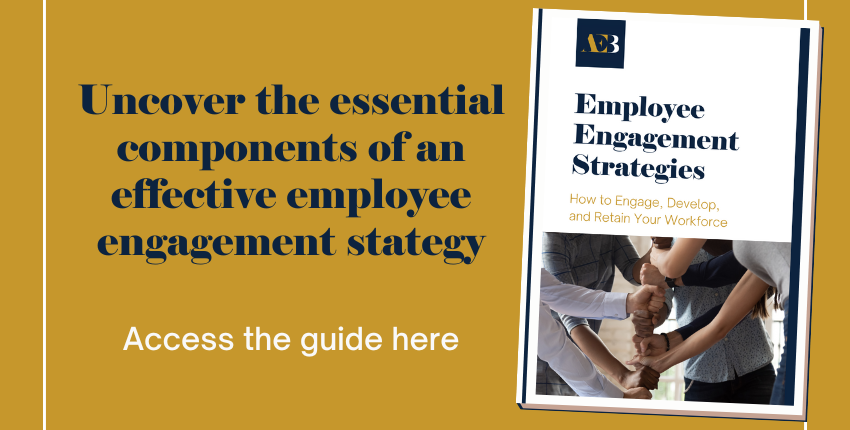Sourcing, recruiting, and hiring new employees is tough. It’s exactly why recruitment firms like ours exist, providing expertise and the needed resources growing organizations need. So when that perfect-fit candidate who has progressed through the interviews and accepted your job offer now tells you they are taking a counter offer, those crushing feelings of frustration and angst are well-founded. Oh, those dreaded and disheartening counter offers!
Many articles have been written posting statistics about how unsuccessful counter offers are long-term for both the employee and employer. These have also been widely disputed as there is growing proof of situations where they have worked out well for both parties. That’s not the point of this article though.
Whether you like them or loathe them, believe they are effective or not, they are becoming much more commonplace. In fact, you should probably expect that any candidate you intend to hire will receive one. Just plan for it.
The percentage of those with formal, detailed counter offers are likely still relatively low. However, employers who follow the shocking news of an employee resigning with the question, is there anything I can do to change your mind, is presumably very high. We would guess that the later scenario is the most common style of counter offers these days.
So how can businesses and hiring managers prepare for these? More importantly, is there anything you can do to reduce the likelihood and risk of candidates accepting counter offers? Fortunately, there is. Keep reading to learn how.
What’s your level of risk for a counter offer being extended?
Before you can develop any sort of strategy to reduce your risk of any counter offers being accepted, you first need to understand the current circumstances. This means understanding the level of risk involved for each (and every) candidate you engage with.
These are questions you should be able to answer early in the hiring process, ideally during your first or second interview. If a candidate is someone you consider strong enough to interview, they are worth understanding from all perspectives.
Why is your candidate exploring this opportunity?
There are a few ways to frame this question, but your purpose is to understand their motivations for considering or exploring a new career option. Are there problems or concerns with their current employer or manager? Are there any roadblocks or hurdles to their career advancement or development? What are they looking for and need in a new role that they may not have now?
Not only do you want to uncover the potential fit of any candidate, but also areas where you can emphasize the benefits and advantages of your opportunity and company. (Side note, this is where developing a strong employee value proposition before you begin any hiring process is helpful.)
The other reason for asking these types of questions early is to ensure your prospective candidates are motivated for the right reasons. Are they open and ready to make a change or are their intentions to use your opportunity as leverage with their current employer? You should quickly move away from any candidates that hint at the latter reason.
Have they received a counter offer before?
Even with the average tenure of employees lasting about four years, making a career or occupational change isn’t a process people regularly do. So they are very likely experiencing a very unfamiliar set of thought processes and emotions. Receiving a counter offer when they aren’t prepared and don’t know what to expect could significantly disrupt their decision process.
If you have a candidate who has received counter offers before, consider that you may be engaging with a highly talented individual. Therefore, if such a candidate progresses to an actual offer, you should be prepared to make your job offer very compelling.
Have they ever accepted a counter offer?
Someone who has accepted a counter offer in the past isn’t necessarily a red flag, but you should inquire more about the specific circumstances. Ask about whether that was a positive or negative experience for them? If they had any regrets, their chances of accepting a counter offer again may be fairly low. However, a positive experience before could very likely increase their odds of accepting one again.
How do they expect their current employer to respond if they resigned?
The answer to this question can provide you with a great deal of information. Not only about the potential risk of a counter offer, but also if a transition will be smooth or a difficult change for your candidate. Further, you can gain a sense of how long the period will be between an accepted offer and their first day. Will they be walked out the door upon resigning or will their current team need more time to transition them out of their current position?
Fair warning, the longer the transition time is between their acceptance of your offer and their first official day, the higher the likelihood of them receiving a counter offer.
Ways to Reduce the Risk of Accepted Counter Offers
Remember, you cannot control whether your perfect-fit candidates will receive counter offers or not. Given the current labor market, you should approach any hiring situation as if your candidates will be getting them. However, you can influence the likelihood of them accepting counter offers.
Review their motivations for making a career change
Before you formally extend a job offer to any candidate, you should have a good degree of certainty that they will accept it. This is a good time to review the reasons they shared for exploring your opportunity. Do those reasons still exist? Is there any opportunity for those reasons to change?
Confirm their excitement for your open position by reviewing the opportunities and career growth your opportunity and organization will provide them. Be realistic without making any false promises, but there should be reasons you can share why this offer is significantly better than what they have now. After all, it was likely why they agreed to discuss the opportunity with you in the first place.
Prepare them for what is next
Once you are fairly confident your perfect-fit candidate will accept your offer of employment, help them feel equally confident about their next steps. It is okay to let them know an official offer with all the important details will be coming their way. After a couple rounds of interviews and evaluations, this will be welcome news.
However, it is equally important to help them prepare for when they need to inform their current employer. For many job candidates this can be more stressful than the interview process.
One approach we like is to explain that one of three things is going to happen once they inform their current employer and officially resign.
- Their resignation will be accepted and their last date of employment will be set for 2 weeks or some other agreed upon time.
- They will be immediately escorted out the door.
- They will receive a counter-offer.
At this point it is important to ask again (like you did during the interview phase) what they expect will happen. Then ask a critical follow-up question regarding how they feel about the possibility of a counter offer. Even if they are certain their current employer wouldn’t step forward with one, it is important they consider the possibility now.
Have a compelling job offer
If you are engaged with a candidate that meets your definition of a perfect-fit hire, communicate their value to you by way of a compelling job offer. During the interview process, it was their turn to sell you on their capabilities and competencies. At this stage, it is your turn to present the complete opportunity.
While you should be presenting a very favorable and desirable opportunity throughout the hiring process, now is the time to place the proverbial bow on top of your open position. Also, make sure you are making your best offer now. Putting your prospective hire in the middle of a tug-of-war between counter and countering offers helps no one. If you want to hire this individual, communicate that now, not when forced into some bidding war later on.
Reinforce your Employee Value Proposition
An EVP should define the fundamental nature of your company that describes what makes it unique and what you stand for. Going beyond mission statements and office perks, it is what differentiates you from all other companies and opportunities in the eyes of your prospective hire.
Make sure that in your job offer and following conversations you continue to share the value they will gain by taking that next step in their career with you over anyone else.
Express your support during the transition
Again, go back to your earlier inquiries about what they expect or think could happen when they tender their resignation. If they expect any hostility, resentment, or an immediate escort to the door, offer to be flexible with an immediate start date. Don’t let your prospective hire worry about any unplanned gaps in employment or income.
Provide guidance if counter offers are completely new to them. Let them know you care about their well-being and career growth even before becoming an official employee.
For candidates who expect counter offers, remain empathetic here too. They are still pursuing your opportunity because something is missing in their current role or company. However, that doesn’t mean they haven’t formed lasting relationships with colleagues or clients or found the work completely unfulfilling. Help them make this transition with confidence, not doubt.
Launch your onboarding process
How a new employee begins their tenure with your company will set the stage for the duration of their employment with you. As soon as a candidate has accepted your offer, your onboarding process should begin.
Start with helping them to engage with other employees by connecting through social media, scheduling informal meetings (either in person or digitally), or inviting them to events planned during their transition period.
Consider sending them a gift box filled with company swag and small personal items and a note to let them know how excited you and your team are for them to officially join your organization. If you want to reduce any appeal of a counter offer, increase the appeal of your organization early.
Final Tips About Counter Offers for Hiring Companies
Anyone involved in hiring knows it has become much more challenging in the past few years. Organizations are competing for great talent at every phase of the talent acquisition process. So it should be no surprise that organizations are going to be just as competitive when it comes to retaining their talent — even if an employee has submitted their resignation.
It bears repeating that hiring companies and managers should simply expect that any candidate you intend to hire will receive a counter offer in some format, whether highly structured and in writing or just a casual question. Even further is that these offers could come at any time, including after a new hire has started.
Make sure you understand the circumstances around your candidate. This means not only why they are considering your opportunity, but also what they need or want in their next role. Then take proactive steps to provide a clear and compelling picture of what a career with your organization might look like for them. You can’t avoid counter offers, but you can reduce the risk of your candidates accepting them.
Interested in more insight and best practices on employee engagement? Access our Guide to Employment Engagement Strategies for ways to engage, develop, and retain your workforce.


.png)





